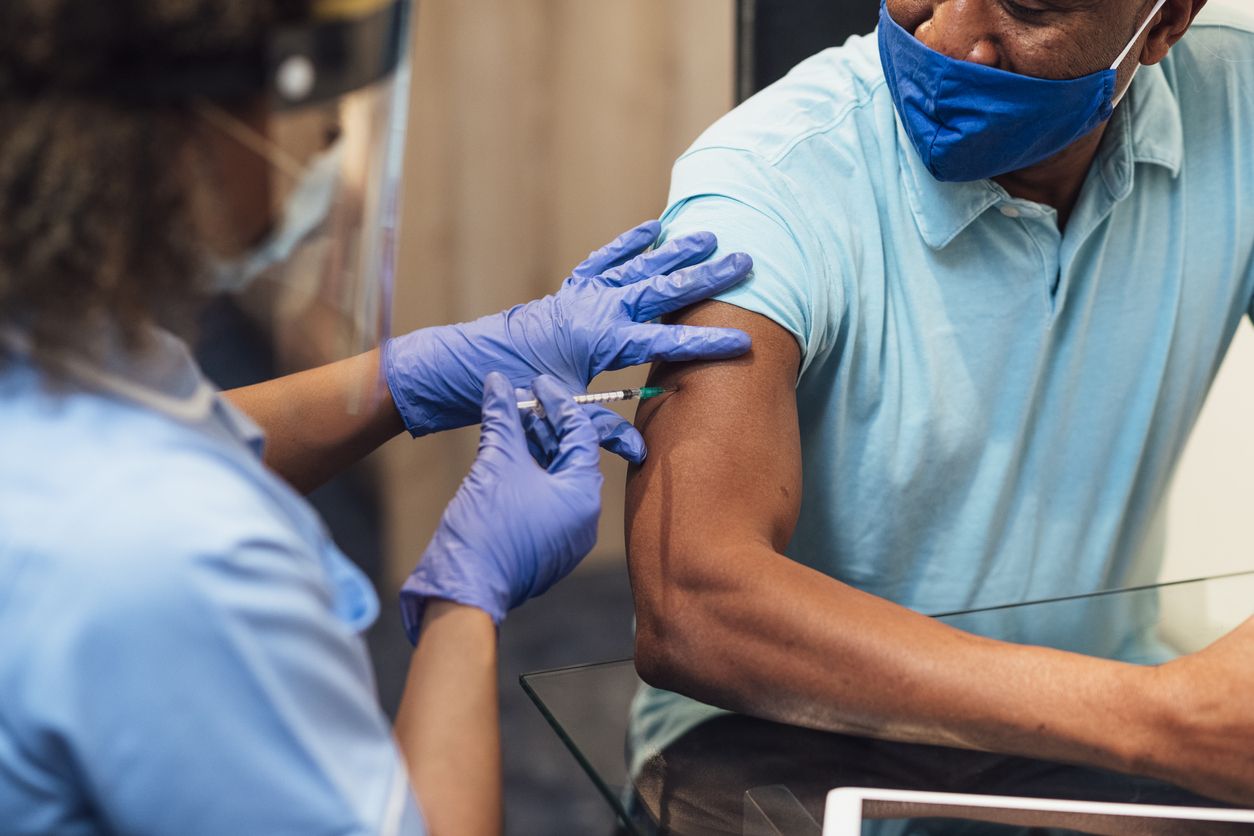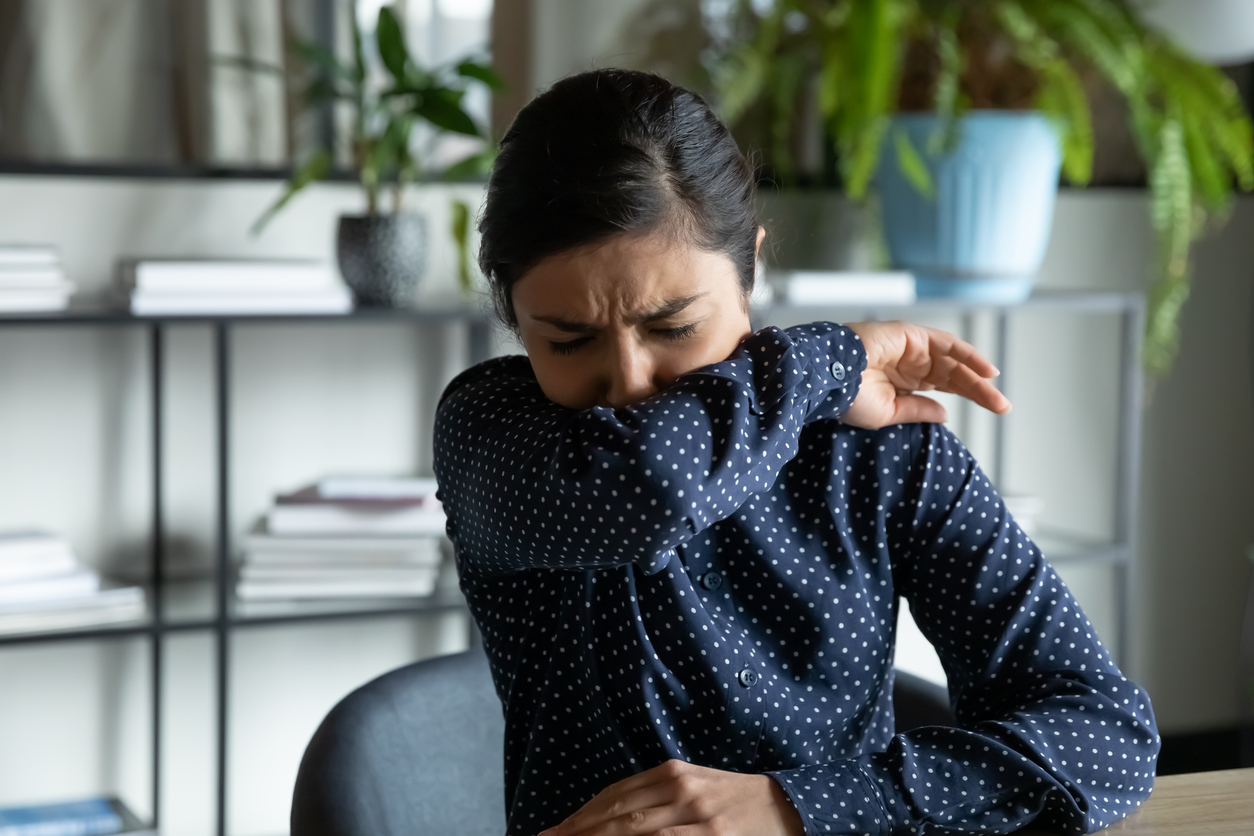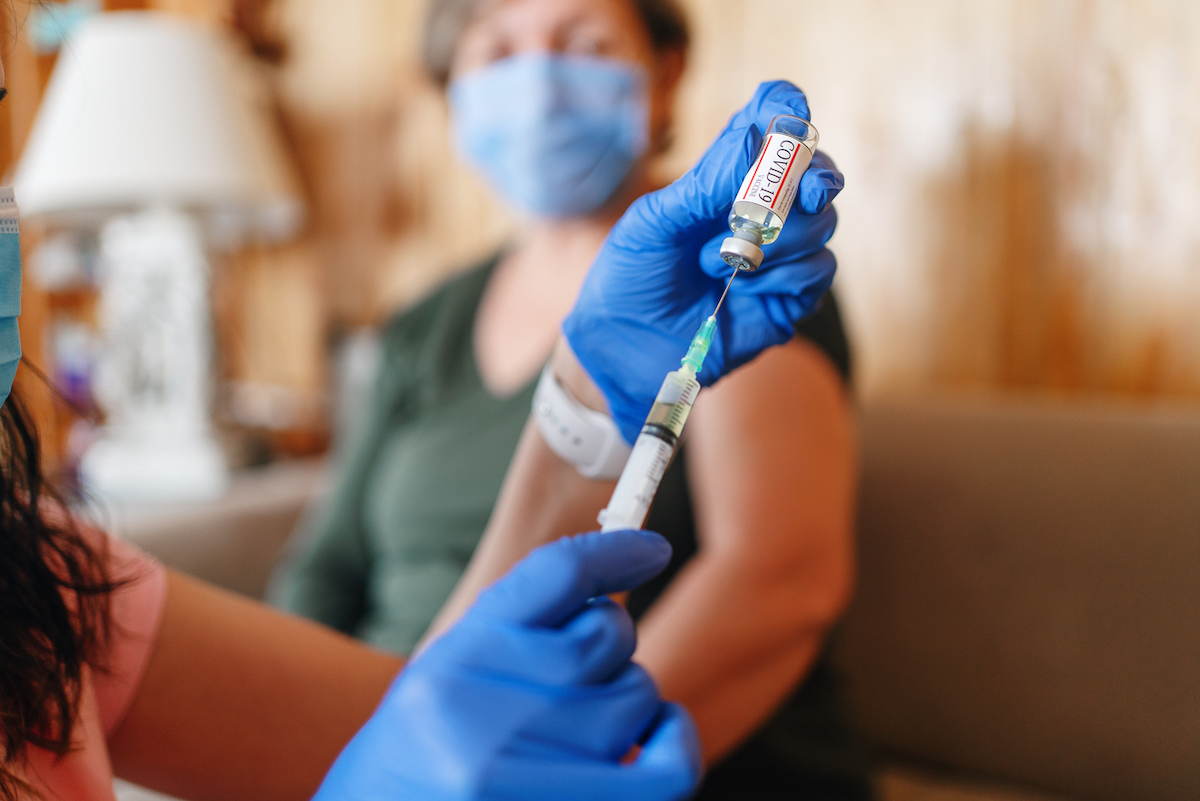In an article for The Conversation, Robert Finberg, MD, a professor of medicine at the University of Massachusetts Medical School, explains that your body develops two responses to a vaccine: the initial response is called the innate immune response, but it’s the later response, called the adaptive immune response, that helps protect you should you come into contact with the virus later. “The long-lasting adaptive immune response … relies on your immune system’s T and B cells that learn to recognize particular invaders, such as a protein from the coronavirus. If the invader is encountered again, months or even years in the future, it’s these immune cells that will recognize the old enemy and start generating the antibodies that will take it down,” he explains. As far as how well your body develops these T and B cells, Mark Loafman, MD, told NBC 5 Chicago recently that vaccine reactions are “really just kind of a reflection of how unique each of our systems are.” “Each of our immune systems is a mosaic composite of all that we’ve been through and all that we have and all we’ve recently been dealing with,” he explained. “Our individual response varies. Everybody gets the appropriate immune response.” And for more vaccine advice, There’s a 50 Percent Chance You’ll Make This Mistake When Getting Vaccinated. Chris Thompson, MD, an immunologist and associate professor of biology at Loyola University Maryland, told Healthline people react differently to vaccines for a variety of reasons. He said factors such as health, genetics, nutrition, age, gender, preexisting immunity, environment, and use of anti-inflammatory medicines can all be connected to vaccine reactions. “Even if you don’t feel crummy after your vaccines, chances are your body still had a good, protective immune response,” Thompson explained. A 2013 study published in the scientific journal Cell found evidence that suggests genetics play a role in our body’s immune response. The researchers looked at approximately 8.2 million gene variants in blood samples taken from 1,629 people in Sardinia, Italy. The SardiNIA researchers found 89 independent gene variants and 53 sites linked to regulating immune system cell production. “From this study, we wanted to know the extent to which relative immune resistance or susceptibility to disease is inherited in families,” said, David Schlessinger, PhD, a study author and chief of the Laboratory of Genetics at the National Institute of Aging (NIA). “If your mother is rarely sick, for example, does that mean you don’t have to worry about the bug that’s going around? Is immunity in the genes? According to our findings, the answer is yes, at least in part.” And for more COVID news delivered right to your inbox, sign up for our daily newsletter. The most common side effects of the COVID vaccine range from pain, redness, and swelling in the injection site, to tiredness, headache, muscle pain throughout the body, chills, fever, and nausea, according to the Centers for Disease Control and Prevention (CDC). But whether you experience one of these side effects mildly or all of them severely, that doesn’t mean the vaccine worked worse or better. Anna Wald, MD, an infectious diseases physician, recently told HuffPost that the vaccine’s effectiveness is “unlikely to be determined by how severe your side effects are,” the news outlet reported.ae0fcc31ae342fd3a1346ebb1f342fcb In his article for The Conversation, Finberg wrote: “Scientists haven’t identified any relationship between the initial inflammatory reaction and the long-term response that leads to protection. There’s no scientific proof that someone with more obvious side effects from the vaccine is then better protected from COVID-19. And there’s no reason that having an exaggerated innate response would make your adaptive response any better.” And for a more on why certain people are hit harder by the vaccine’s side effects, check out This Is Why Half of People Have Stronger Vaccine Side Effects, CDC Says. In answering a Q&A with Cleveland.com, Amy Ray, MD, a director at MetroHealth, said people should not “use the presence or absence of side effects as ‘proof’ of immunity.” “If you don’t have side effects, it doesn’t mean your immune system isn’t working,” James Fernandez, MD, an allergy and immunology expert, told the news outlet. “I wouldn’t focus on those early side effects related to the vaccine to judge whether you had an [effective] response or not.” Kelly Elterman, MD, a board-certified anesthesiologist in San Antonio, Texas, also explained in a recent article for GoodRx that a lack of side effects doesn’t correlate with decreased immunity. “Only about 50 percent of people vaccinated with either the Pfizer or Moderna vaccines experienced side effects other than arm pain, while 95 percent were protected from COVID-19 infection,” Elterman wrote. Additionally, less than half of Johnson & Johnson recipients developed side effects other than pain at the injection site, “while up to 74 percent were protected from COVID-19 infection.” And if you’re curious as to how long your vaccine works for, Dr. Fauci Says Your COVID Vaccine Protects You For This Long.



